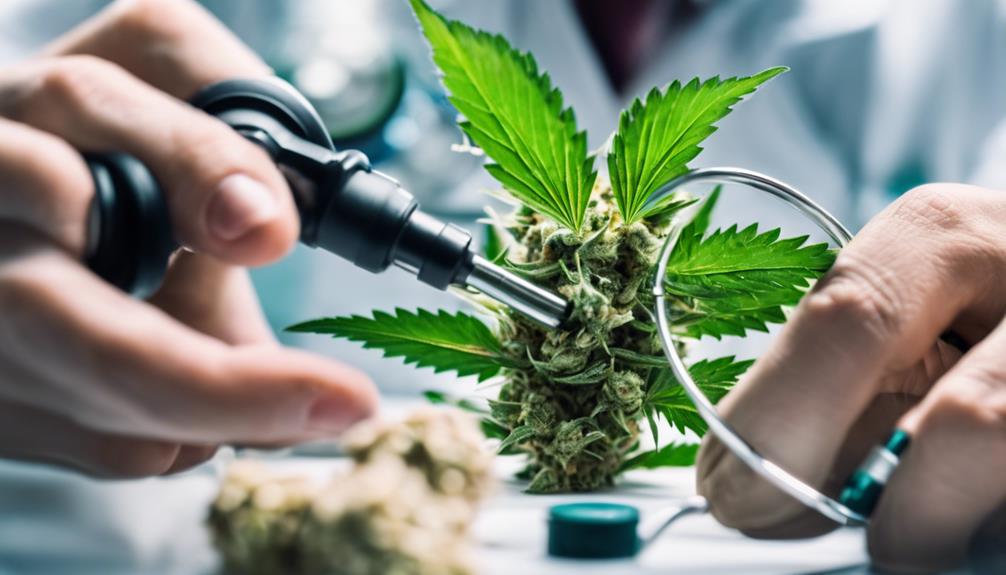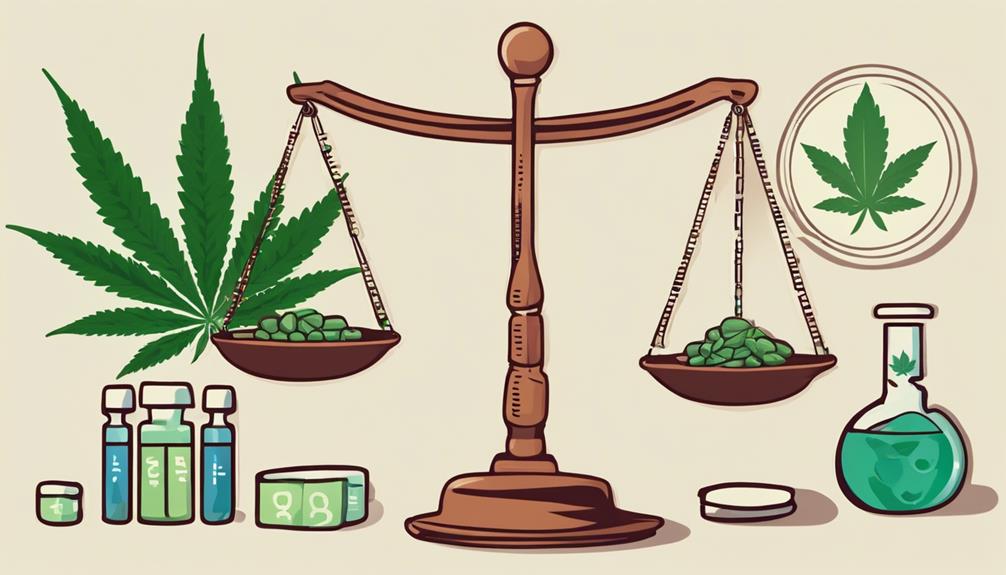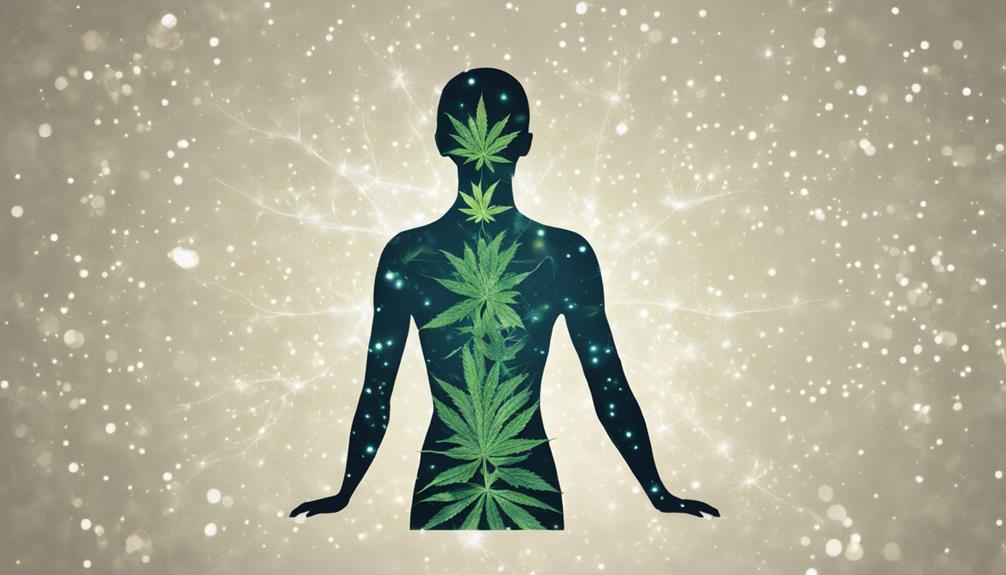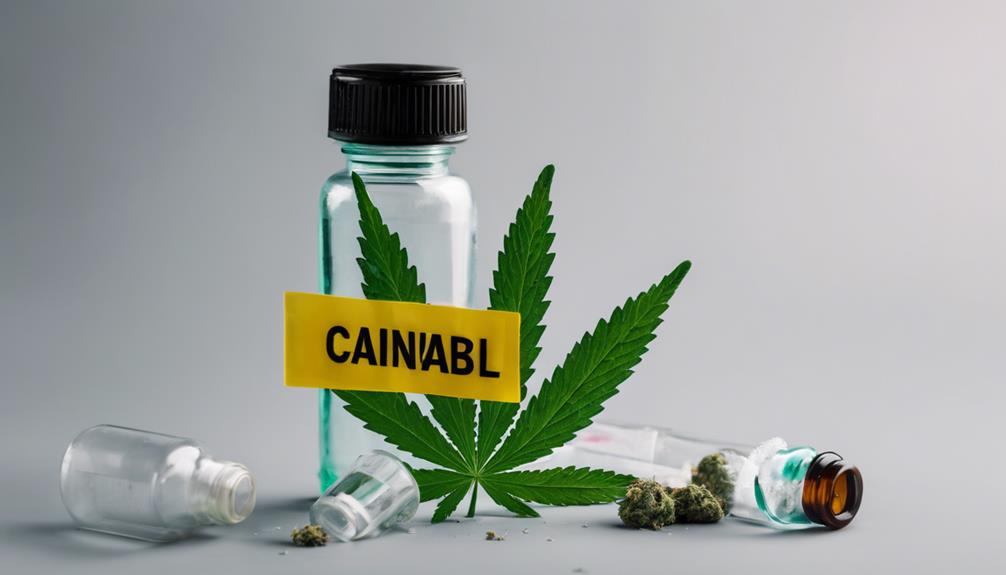You’ve likely heard about the increasing prominence of medical cannabis in treating severe symptoms that traditional medicine often struggles with. It’s intriguing how, by interacting with your body’s own endocannabinoid system, it can alleviate chronic pain, muscle spasms, and other debilitating conditions. There’s a growing body of research supporting these claims too. But what makes it a potentially better alternative? And how does it provide relief without the addictive qualities common in traditional treatments? Let’s delve into these compelling questions together.
Understanding Medical Cannabis

If you’re considering medical cannabis as a potential treatment for severe symptoms, understanding it is crucial. It’s not just about getting a prescription and using it. You need to engage in patient education, learning about the properties of the plant, its various strains, and how each can affect your body differently.
Medical cannabis may help with a wide range of conditions including chronic pain, seizures, and multiple sclerosis. However, this isn’t a one-size-fits-all solution. The effect can vary from person to person based on factors such as genetics, overall health status and severity of the condition.
Part of patient education involves understanding dosing guidelines. An inappropriate dose can lead to undesirable side effects like dizziness, paranoia and increased heart rate.
It’s important to start with a low dose and gradually increase it under your healthcare provider’s guidance.
The Science Behind Cannabis
Diving into the science behind cannabis reveals complex chemistry that plays an essential role in its medicinal properties. The foundation of this science lies in cannabinoid research and the endocannabinoid system.
Cannabinoid research has identified over 100 cannabinoids in cannabis, with THC and CBD being the most well-known. These cannabinoids interact with your body’s endocannabinoid system, a complex cell-signalling system that plays a key role in maintaining physiological homeostasis.
Understanding the endocannabinoid system brings into focus the medicinal potential of cannabis. This system comprises receptors, enzymes, and endocannabinoids themselves. Cannabinoids from cannabis can bind to or influence these receptors, mimicking endocannabinoids and helping regulate essential body functions.
Cannabinoid research is also uncovering the potential of lesser-known cannabinoids and their therapeutic applications. It’s a rapidly evolving field contributing to our understanding of how cannabis can help manage severe symptoms in various conditions.
Cannabis Vs. Traditional Treatments

When it comes to managing severe symptoms of various ailments, one might wonder how cannabis compares to traditional treatments. The efficacy comparison isn’t straightforward as it largely depends on the specific ailment and individual patient experiences.
You may have heard that some patients find cannabis more effective than traditional treatments. This is often because cannabis can address multiple symptoms at once, reducing the need for multiple medications. However, it’s crucial to acknowledge that results can vary widely from person to person; some patients may experience side effects from cannabis while others may find traditional treatments more effective.
Additionally, while cannabis has been shown to be effective in managing symptoms such as pain, nausea, and seizures, there’s still much we don’t know. Research on its long-term effects and potential interactions with other medications is ongoing.
In contrast, traditional treatments often have a long history of use and extensive research backing their efficacy. However, these treatments can also have side effects and aren’t always as effective for all patients.
In the end, it’s a highly individual decision that should be made with the guidance of a healthcare provider.
Benefits of Medical Cannabis
Despite the ongoing debate, many patients find the benefits of medical cannabis undeniable. You’ve probably heard patient stories praising this alternative treatment’s effectiveness. These accounts aren’t just based on personal experiences; they’re supported by an increasing body of scientific evidence validating cannabis’ therapeutic value.
Consider the relief it provides for severe symptoms. For many patients, traditional treatments fail to alleviate their suffering leading them to explore other options. Medical cannabis offers unique versatility with its diverse chemical compounds; it can address various symptoms from nausea and appetite loss to seizures and spasms effectively.
Now let’s discuss legal considerations. It’s crucial to acknowledge that medical cannabis use is legally permitted in many jurisdictions worldwide reflecting growing recognition of its medicinal value. However, being informed about your local laws concerning medical cannabis use is essential.
In essence, medical cannabis offers an effective legally acceptable option for patients demonstrating human resilience in continuously seeking improved ways to heal and support others. It’s time we set aside prejudices and embrace the full potential of medical cannabis.
Treating Chronic Pain With Cannabis

The use of cannabis as a treatment for chronic pain has emerged as a groundbreaking approach in the medical field. Pain management has always been a pivotal subject. Traditional painkillers can be addictive and may have harmful side effects. This is where cannabis, as an alternative therapy, steps in.
Research shows that cannabis contains compounds called cannabinoids that interact with receptors in your brain to reduce pain and inflammation. It’s not about getting high; it’s about finding relief. Medical cannabis provides a new perspective in pain management, especially for those suffering from conditions like arthritis, fibromyalgia, and cancer-related pain.
Cannabis For Mental Health Disorders
Exploring the terrain of mental health conditions can be overwhelming but consider this: medical cannabis might offer a promising alternative in your pursuit of anxiety relief and mood regulation. It’s not a one-size-fits-all solution but it’s a path worth exploring.
Research suggests that certain compounds in cannabis like cannabidiol (CBD) have anxiety-relieving effects. If you’re seeking anxiety relief you’re not alone; it’s one of the most common mental health conditions globally. The ability of cannabis to interact with the body’s endocannabinoid system might offer you a new approach to manage this condition.
Mood disorders too can be debilitating disrupting daily life and challenging your ability to maintain healthy relationships and perform at work. Some studies indicate that cannabis might help regulate mood by interacting with the same endocannabinoid system. It’s no magic bullet but it could be beneficial addition to comprehensive treatment plan.
In your journey towards managing mental health conditions remember: it’s essential to consult with a health professional before starting any new treatment so they can guide you in making informed decisions that best serve your overall health and wellness.
Risks and Side Effects

While medical cannabis may offer potential relief for various mental health conditions, it’s equally important to weigh the associated risks and side effects. There’s no denying the potential benefits but you must also be mindful of the potential dangers.
Firstly, one of the most common side effects is psychoactive symptoms such as feeling high or experiencing hallucinations. This may deter some from using medical cannabis especially if these effects interfere with daily tasks.
Negative reactions can occur including dizziness, dry mouth, increased heart rate and lowered blood pressure. It’s also important to remember that not everyone will experience these side effects; individual responses can vary greatly.
The long-term use of medical cannabis isn’t fully understood yet and could present its own risks. Dependency is one such concern with some individuals reporting difficulty in discontinuing use without experiencing withdrawal symptoms. Additionally, the potential for cognitive impairment particularly with prolonged use is a significant worry.
Future of Cannabis in Medicine
Diving into the future of cannabis in medicine it’s undeniable that we’re standing on the brink of a potential revolution. Legalization progress in various parts of the world is breaking barriers opening doors for more extensive research and application.
You as part of this audience that values service to others stand to play an essential part in this revolution unfolding. Your role could be in patient education enlightening others about the potential benefits and risks of medical cannabis. The more knowledge patients have the more empowered they become in their healthcare decisions.
The future is promising but it’s not without challenges. For one there’s the lingering stigma associated with cannabis use. Then there’s the need for more thorough studies to fully understand the long-term implications of its use.
Despite these hurdles, the pathway towards acceptance and integration of cannabis into mainstream medicine seems inevitable. The key is to ensure that this process is handled responsibly and ethically prioritizing patient welfare above all else. As the future unfolds your role in shaping the narrative around medical cannabis is significant.
Conclusion
So isn’t it time we reconsider medical cannabis as a viable treatment option? It offers a potential solution to severe symptoms often outperforming traditional methods. With its ability to manage chronic pain and mental health disorders it provides a holistic approach without risk of addiction. As we continue exploring its benefits and managing its risks, the future of medical cannabis in medicine looks promising. Let’s embrace its potential for a healthier tomorrow.
If you understand the immense benefits of medical cannabis I invite you to visit Fells Point Cannabis Docs of Maryland or give us a call at (410) 401-4200 to learn more. Our friendly team is always here to help you understand this amazing treatment option aiming to make your journey towards better health as comfortable and informative as possible. So why wait? Let’s explore the potential of medical cannabis together.

